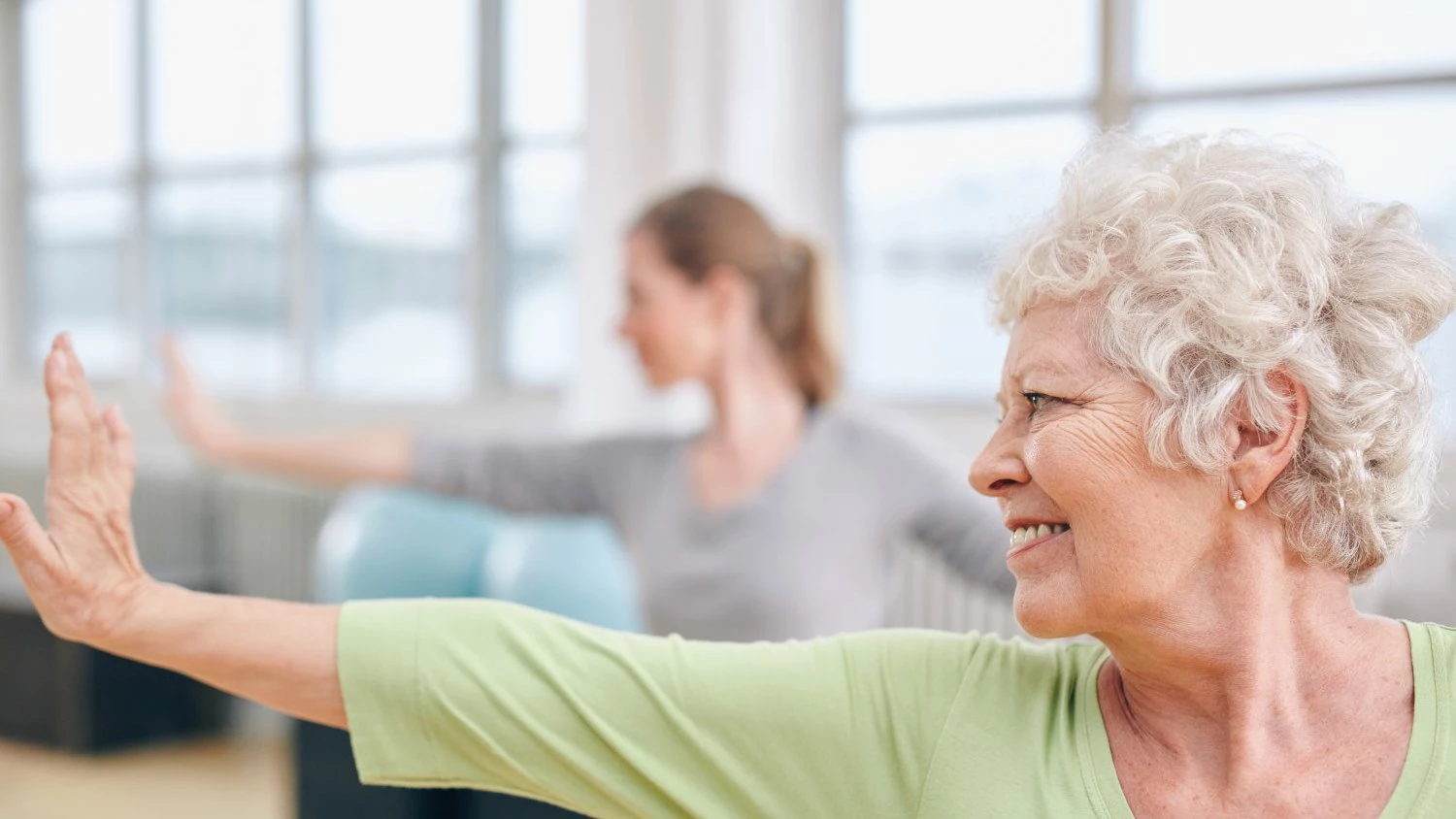Restorative Yoga for Parkinson’s Disease: Strength, Balance, and Improved Quality of Life

Most Americans have heard of Parkinson’s disease or know someone who is affected. Roughly 1.5 million Americans suffer from the effects of the disease, and approximately 60,000 individuals will be diagnosed this year. Parkinson’s disease can create a significant financial and emotional burden for patients, family members and caregivers. It is important to understand how the disease affects patients, and why a restorative yoga practice may help patients with Parkinson’s to experience some relief from their symptoms.
Parkinson’s disease is an incurable, degenerative disorder of the nervous system that has no known cause. Symptoms of Parkinson’s typically emerge after the age of 50, and often include muscle rigidity, slowness of movement, slurred speech, and difficulty walking. Thinking and behavioral problems associated with dementia often occur as the disease progresses, and depression is fairly common.
Parkinson’s disease occurs as a result two factors. The first is a build up of a particular protein in brain cells or neurons. The second is the decline of dopamine producing nerve cells in the midbrain, the region largely responsible for motor control. When the dopamine system does not function properly, coordinated muscle movement becomes impaired and symptoms like tremors, mumbled speech, loss of balance, or stiff, awkward movements occur. These symptoms become more pronounced and debilitating over time.
While there is no known cure for Parkinson’s, there is increasing evidence that gentle, restorative yoga can help to alleviate some of the symptoms of the disease. Of greatest benefit are gentle, slow and precise yoga postures that
-
Increase flexibility and range of motion
-
Improve circulation
-
Enhance positive emotions, and
-
Improve alertness of mind
After a few classes of adaptive yoga, most students notice that they
-
Stand taller and lift their chests rather than slumping
-
Have better balance and are looking forward, not down
-
Are aware of their gait and less prone to shuffling their feet
-
Feel stronger and have greater range of motion, and
-
Feel relief from symptoms such as rigidity and fatigue
These experiences may improve an individual’s quality of life by
-
Reducing the fear of falling, and reducing the risk for injury
-
Improving the ability to engage in everyday tasks, and
-
Increasing the opportunity to socialize and interact with others
While there is no evidence that regular yoga practice has an effect on the systems in the brain that are related to Parkinson’s disease, patients report improvements in their quality of life.
Yoga classes for those with Parkinson’s disease need to be specially tailored. Postures must account for the fact that students are less mobile, and have muscle weakness and fatigue, reduced flexibility and motor control, and decreased mobility. Of greatest importance is that the yoga practice presents a minimal risk for falling. This means plenty of chairs, and an unobstructed place for moving. Next it is important to know which postures best target the physical needs of students such as trunk rigidity, hamstring tightness, and compromised balance and breathing. Props including bolsters, blankets, blocks and straps can increase the ease in which students experience a safe and restful practice.
Yoga can be very restorative and rejuvenating for individuals suffering from Parkinson’s disease. It is essential to find a yoga instructor with a depth of knowledge regarding what works for individuals with the disease and what does not. It is also important to consult a physician to make certain that yoga is an appropriate exercise. Once these pieces are in place, the experience of yoga for those with Parkinson’s can be nothing short of wonderful.
 Lynn Burgess is the founder and director of Sarasota, Florida’s most established studio, Yoga from the Heart. She is registered with Yoga Alliance as an RYT 500 and E-RYT 500 instructor. She has been working with and teaching classes and private instruction specific to those with Parkinson’s Disease since 2007. A topic expert, Lynn writes articles that have been featured in Women’s Health Magazine and published in Yogi Times Magazine. To learn more about Lynn, visit www.yogafromtheheart.com; become her friend on Facebook: www.facebook.com/lynn.burgess.186, or follow her on Twitter at: Yoga from the Heart @yogasarasota.
Lynn Burgess is the founder and director of Sarasota, Florida’s most established studio, Yoga from the Heart. She is registered with Yoga Alliance as an RYT 500 and E-RYT 500 instructor. She has been working with and teaching classes and private instruction specific to those with Parkinson’s Disease since 2007. A topic expert, Lynn writes articles that have been featured in Women’s Health Magazine and published in Yogi Times Magazine. To learn more about Lynn, visit www.yogafromtheheart.com; become her friend on Facebook: www.facebook.com/lynn.burgess.186, or follow her on Twitter at: Yoga from the Heart @yogasarasota.


